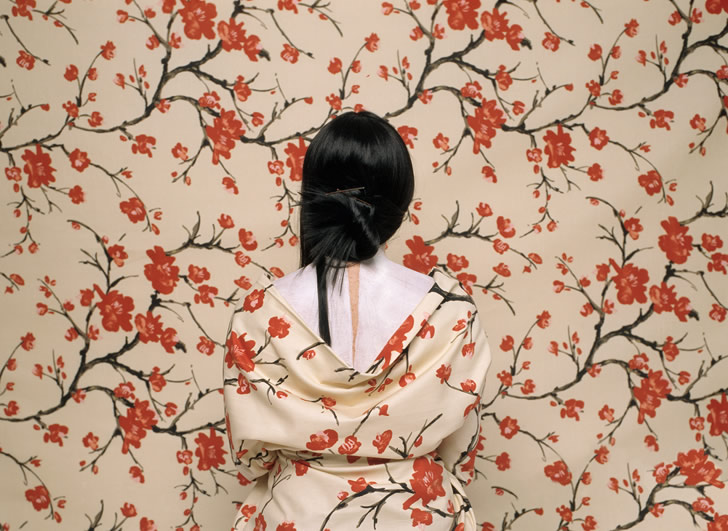Being an adopted Korean in the late 1990s and early 2000s in the peak of boy bands and sparkly pop princesses was, for a lack of a better word, hard.
Sometimes, I would cheer for the white brunette just to feel relevant. While all my friends drooled over Justin Timberlake, I fancied Chris Kirkpatrick due to his non-conventional dreadlocked brown hair and shorter stature. What other choice did I have? There were no faces like mine in the sea of popular media. In fact, faces like mine were basically non-existent, if not being mocked.
My friends and I discovered teen movies from the eighties while we were in junior high. Watching in awe, Sixteen Candles played out every preteen’s fantasy of being the girl who pulls the unattainable senior. While all my fair-skinned friends chattered about could-be’s and would-be’s, I couldn’t help but feel embarrassed by the character, Long Duk Dong, and how the only Asian student in this suburban Chicago school was only comic relief. It made me wonder: do people see me as some sort of joke? A caricature of some foreign person, and no one to take seriously?
It was easy to paint myself as a background character. I didn’t want to be front and center but rather, a trusty sidekick to my white friends who gave more main character vibes. I was thirteen years old.
For my friend Sarah’s fourteenth birthday, we went and saw Snow Falling on Cedars in the movie theater. It was a bit of a strange movie choice for a dozen young teenagers, and the rest of my friends were distracted and disengaged. They giggled at the slow build of the story and wondered what the point was.
I was the only one who probably remembers that movie. It was the first time I saw a white male lead in love with an Asian woman. While my friends thought Ethan Hawke was status quo handsome, they were dismissive of the rest of the cast amidst the fierce racial and legal conspiracies where a Japanese man was victim in a post-World War II setting. It was the first time I didn’t feel invisible in a long time.
My friends growing up usually forgot I was Asian. The only times I was reminded how different I looked was when I saw how Asians were portrayed in movies. The affected representation or the lack thereof gave very mixed messages. Did people view me as an embarrassment? Or was I enigmatically sexy? How was I supposed to know that a co-existing Asian person could walk amongst Hollywood, when big screen entertainment and literature only showed people who looked like me as being either mysterious or awkward?
The first mainstream Asian woman in a blockbuster movie was Lucy Liu in Charlie’s Angels. I was fifteen when it came out in 2000. Lucy Liu’s character, Alex, was dating a white man. She did not speak with any sort of accent. To a Korean girl from the suburbs, there was never a movie character that resonated so much. Finally, someone who shared the same hooded eyelids and thick black hair who seemed to fit in, rather than be a wordless shadowy figure or cultural fixture. It was shocking no other characters in Charlie’s Angels even acknowledged Liu’s character was Asian.
Gedde Wantabe, who played Long Duk Dong in Sixteen Candles, later told interviewers he didn’t realize how problematic his portrayal of Asians was. He enjoyed making people laugh. This was the precursor of emasculated and ridiculed Asian men in popular media, especially in the 2000’s. While watching American Pie, I couldn’t help but cringe at the way John Cho said his infamous line:“MILF. Mom I like to fuck.” Maybe it was my own insecurity, but I swore I heard the stunted dialect between each exaggerated word.
In the next decade and well into a different season of womanhood, Jenny Han, author of To All the Boys I’ve Loved Before and more recently, The Summer I Turned Pretty, seemed to finally bring Asian Americans to the spotlight in a more realistic approach. Like my children, the main character of To All the Boys I’ve Loved Before, Lara Jean, is half-Korean. She is a full-dimensional girl, bursting with strange quirks and deep emotional hurdles. When this book was made into a Netflix movie, the producers wanted to cast Lara Jean to a white actress. Jenny Han put her foot down and said no. I’m happy they let the main character be a person of color and still had confidence the content would sell.
I personally prefer John Cho as Hikaru Sulu than MILF Guy #2. I loved seeing Simu Liu go head-to-head as a Ken Doll against Ryan Gosling to show the Asian community can still take a joke, as long as we aren’t the only butt in the room. I enjoyed watching Bong Joon-Ho win Director of the Year, when his Korean film Parasite swept the American Oscars.
Back in the early 2000s, even my adopted mom, who is a white school teacher and an avid reader of all New York Times’ bestsellers, didn’t purchase a copy of Memoirs of a Geisha for her book club. But in recent years, my mother is telling me to watch Minari due to the bone-shaking themes and how much she recommends reading Crazy Rich Asians, in-between her regular endorsements of Lessons in Chemistry and Where the Crawdads Sing. It shouldn’t be two separate categories, and it finally feels like it isn’t.
Asian culture is seeping through the cracks of mainstream entertainment. People who share the same facial features as me – features that used to make me uncomfortable – are getting a bigger slice of representation. My children can turn on the TV and see not one, but two K-pop bands perform on the 2023 MTV VMAs. I just bought my daughter Jenny Han’s books to read along with her requested Colleen Hoovers. My son watched Simu Liu in Shang-Chi and the Legend of the Ten Rings without thinking it was weird to have an Asian lead.
It makes me wonder if that girl growing up in the 1990s-2000s misunderstood assimilation. To her, it was pretending to be white and fade into the background. But now, in the midst of motherhood, it’s become apparent that all that girl wanted was to be herself and fit in, without having to laugh at other Asians to do so. Better yet, that girl and all girls who look like her, can now start to step away from the wallpaper. As Lara Jean famously says in To All the Boys I’ve Ever Loved Before, “I was used to being invisible, but now, people were looking at me.”
Meet the blogger:
 RACHEL KRAUS is currently working towards a double major in Creative Writing and Anthropology at Hamline University.
RACHEL KRAUS is currently working towards a double major in Creative Writing and Anthropology at Hamline University.


